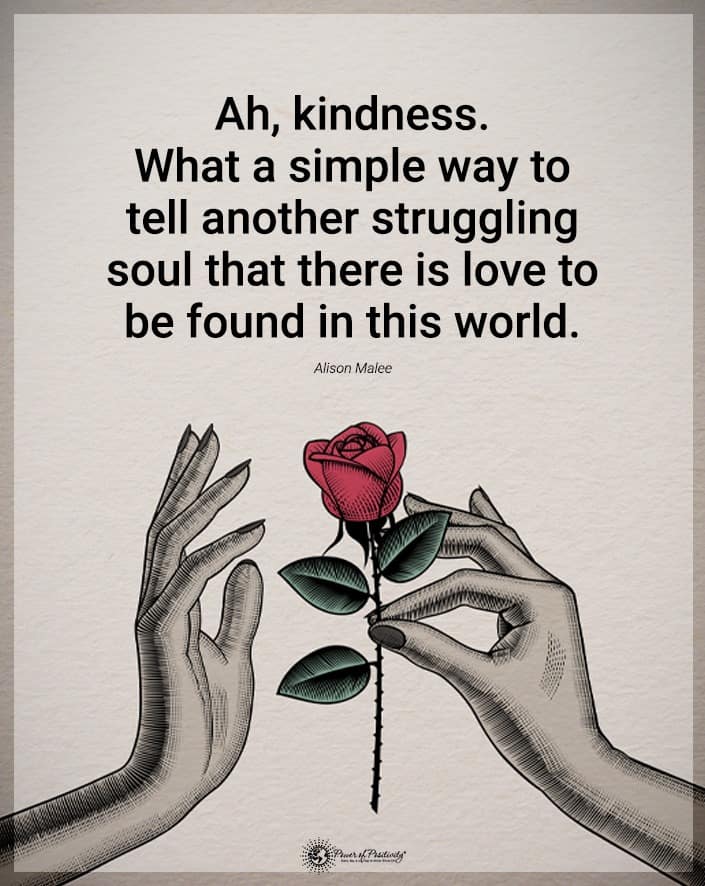You want your relationship to last and build a secure, healthy, and happy partnership. You want your partner to be in it for the long run with you. But that’s easier said than done, especially in today’s dating scene. People break up all the time, and the chances are that you’ve seen your fair share of relationships that met their eventual end.
So, what’s the secret of those long-lasting couples that have been together for a decade and still seem so happy? Why does it look like some relationships never leave the honeymoon phase? What determines such longevity? There are many, but let’s start with just a few! Here are six positive relationship habits that make couples last.
Relationship Habit #1 – Expressing Regular Appreciation
The longer a relationship lasts, the less the people in it tend to remember to express their appreciation for each other. There’s no malice behind this trend – people assume that their partners know they love and appreciate them. Or they get so used to their partner’s actions that they forget to stop and truly soak in the love they receive.
The flippant, casual nature of how appreciation expressions decrease over time makes this so deadly for relationships. Research has shown that small gestures and expressions of thankfulness and appreciation for your partner can significantly boost relationship satisfaction.
All you need to do is keep noticing what your partner does and commenting positively on those things! Just make sure you’re being honest and genuine – people can tell when you’re faking something like that.
You can try doing these things:
- Thank them for their hard work at home and in their career
- Express the things you love about them in terms of their qualities and strengths
- Tell them when they impress you
- Support them when they’re going through something difficult and express your admiration for their perseverance, strength, and capabilities
- Compliment them on their appearance regularly
- Write little notes to each other
- Get each other small but thoughtful gifts
Relationship Habit #2 – Doing Chores Together
There’s nothing that kills a relationship’s spark faster than feeling like a housekeeper, servant, or parent to your partner. Doing chores together and dividing up tasks you both dislike can help to facilitate bonding while diminishing resentment. You’ll also build trust with each other, and it’s a way to spend time together and make unpleasant tasks go by more quickly.
Labor division can indeed mean one partner ends up doing more chores. For example, a stay-at-home, homemaking partner will likely do far more chores than the partner who leaves the house to work. However, there’s a misconception that this division means that the working partner must do zero chores whatsoever. That’s not the reality! Here’s why:
· Chores Are Normal
Chores are an everyday part of life for all people. Full-time working individuals who are single will do 100% of their chores. In a relationship, those people don’t lose their personal responsibilities. Some of that work can, of course, be delegated to a partner, but they shouldn’t be responsible for 100% of the other party’s chores. This is especially true if the partner at home also has to raise and care for children, which is a whole exhausting ordeal in itself!
· Full-Time Homemakers Are Always “On”
When you work outdoors, there’s a point where you come home and switch off for the day. Homemakers, however, never get a break. They must keep doing work around the clock, but they’re not getting paid for this 24/7 overtime! It’s reasonable for a homemaker to do all the chores they can while their partner is away at work. But once both parties are at home together, it’s also reasonable for them to split their work so that both people can enjoy a better quality of life.
· Homemaking Is Not An “Easy” Job
There’s a common misconception that it’s easy to be the stay-at-home partner, but that’s far from the case. There’s a huge chunk of mental load that goes into managing a household, especially if raising children is also involved. The job of being a manager is a full-time, well-paid job outside of the home, and there’s no reason to view it as more accessible or as of less value at home. Treating a partner as if their work is “easy” is also a rather disrespectful way to interact with them!
Relationship Habit #3 – Taking Time To Interact Physically
No, we don’t just mean in the bedroom! If you’ve ever noticed that relationships tend to get less physically affectionate over time, then you know just how sad that change can be. Couples shouldn’t lose their physical affection – that’s how spark dies out and interests change.
Physical touch initiates the release of oxytocin, often called the “love hormone.” This hormone can boost mental health, and it also helps to facilitate bonding. In other words, when you cuddle, hug, or kiss your partner, you’re getting closer together and making each other feel better.
Take time each day to spend time cuddling with each other or simply holding hands. This can make a world of difference. Make sure that this type of time is a priority for both of you, even if it’s just 15 minutes of cuddling in bed before you turn in for the night.
If your relationship isn’t significant on physical touch, that’s okay! Just replace this with whatever love language or expression of affection you both prefer. What matters is that you’re getting the chance to communicate love to each other in meaningful ways.
Relationship Habit #4 – Spending Time Apart
It seems counterintuitive, but spending time apart is incredibly important for a healthy, long-lasting relationship. Often, people get overly wrapped up in their partners and lose their sense of individuality in the process. This may be due to unhealthy, insecure attachment styles, or it might just be from overenthusiasm and idealism. Either way, it’s not great!
The idea that all couples must be two halves of a whole is a lovely sentiment, but if taken too literally, it has disastrous effects. Partners shouldn’t “complete” each other. They should complement each other but as two whole, complete individuals all on their own. That’s why each person needs to have time and space to be themselves, do their hobbies, and be their people.
The desire to live your whole life consumed by your partner, centering your universe on them, is certainly tempting for some. But that’s not healthy, and it’s only going to lead to codependent and insecurely attached relationships. Things will crash and burn if you don’t let them breathe.
So maintain your own identity for the sake of your relationship. Keep some interests that are just yours, have separate friends, go to places alone, and be independent!
Relationship Habit #5 – Arguing Fairly
Arguments are inevitable in most relationships. They don’t spell doom or gloom – if you do it right, that is! Studies show that expressing anger productively can lead to a happier relationship in the long term. Stronger couples are capable of fighting fairly and effectively. They do this by:
- Addressing conflict and issues directly instead of avoiding or running away from them
- Squashing resentment through open communication and positivity to resolve problems
- Listening to each other and fully considering the point of view of the other party
- Listening with a focus on understanding instead of responding
- Avoiding negative forms of communication, such as name-calling, personal attacks, judgment, and defensiveness
- Taking time to breathe and calm down if things get too heated
- Respecting each other’s boundaries throughout this entire process
- Picking battle wisely and choosing when not to pursue an issue
- Accepting and letting go of battles that are left abandoned so you can both move on
In addition, positive relationships don’t get caught in the idea that you shouldn’t “go to bed angry” with each other. Strong couples know that getting enough sleep reduces irritability and allows people to revisit conflict with a clear head for better resolution. Research supports this, showing that couples who earn more than seven hours of sleep can resolve disputes and have calmer fights.
Relationship Habit #6 – Accepting And Respecting Flaws
The act of trying to change your partner is an act that’s doomed to fail. So is the act of trying only to find the “perfect” partner. These are both concepts that either won’t work or are entirely fictional. No one’s perfect, no matter how much they seem to be at first, and you don’t have the power to change others – only yourself.
Getting lost in the idea that your partner is perfect and without flaw is signing up for disappointment. You’ll see an idealized version of your partner that will be impossible for them to live up to. And, of course, you’ll be utterly blind to any negative behaviors that they do have.
But even worse than that is the act of trying to change your partner’s flaws. If you wouldn’t date your partner as they are, you shouldn’t date them at all. People aren’t projects! A happy, positive relationship will have partners who accept each other’s flaws and don’t try to get rid of them.
It’s worth noting, of course, that some flaws are more problematic than others. Things born from hostile intentions or that negatively affect you need to be discussed and can be grounds for separation.
But for the most part, most flaws are things that each partner must work on individually out of a desire for personal improvement. Partners should respect, accept, and even love those flaws! That’s what makes you both who you are, after all. At the end of the day, date people whose flaws you can happily live with and learn to adore them!
Final Thoughts On Some Relationship Habits That Make Couples Last
Long-lasting, happy relationships are born from the work and effort of both partners, giving their all to their commitment to harmony and positivity. If that’s something you want for your relationship, start including these six positive relationship habits into your bond with your significant other.
If you and your partner find that you may need some help in your relationship, there’s no shame in seeking marriage counseling! Even the happiest, healthiest relationships can earn benefits from couple’s therapy, so give it a shot if you think it’ll be helpful.




















